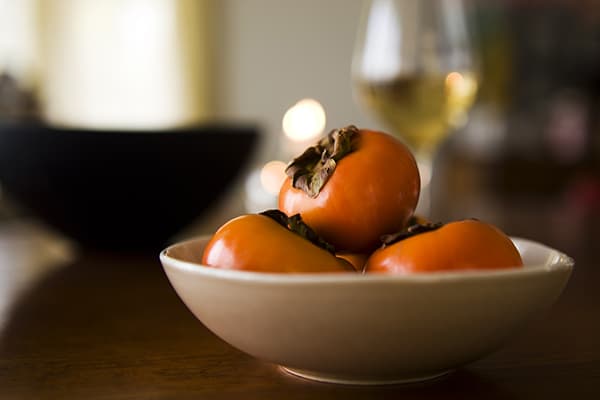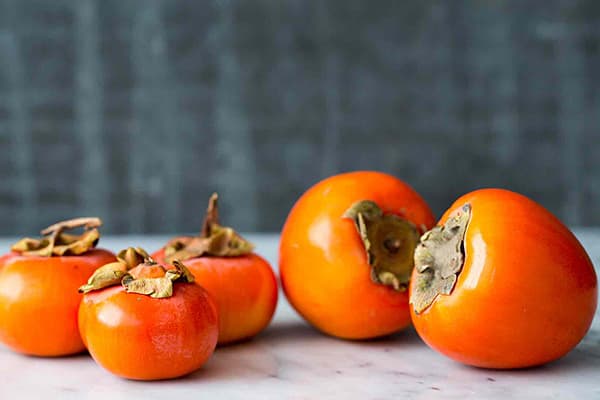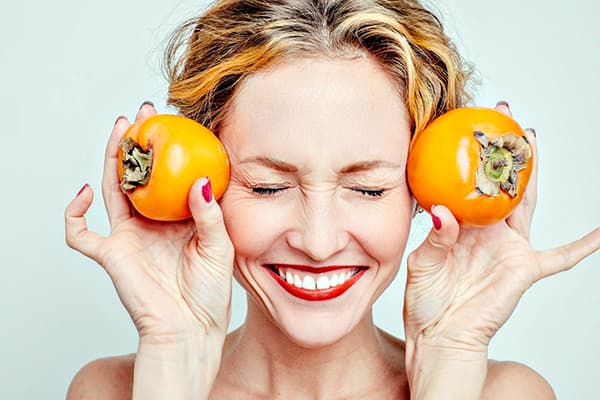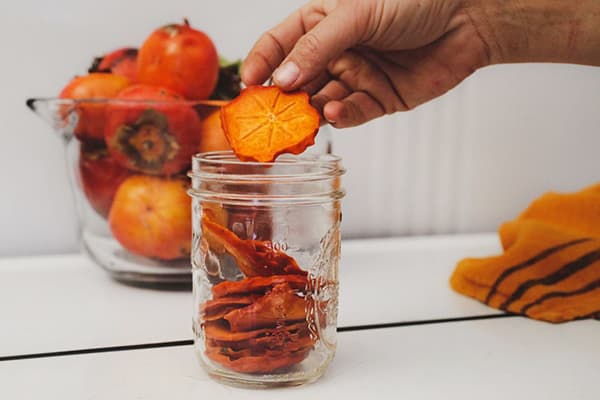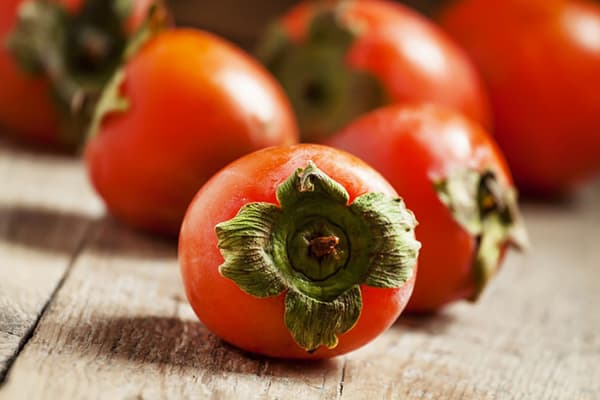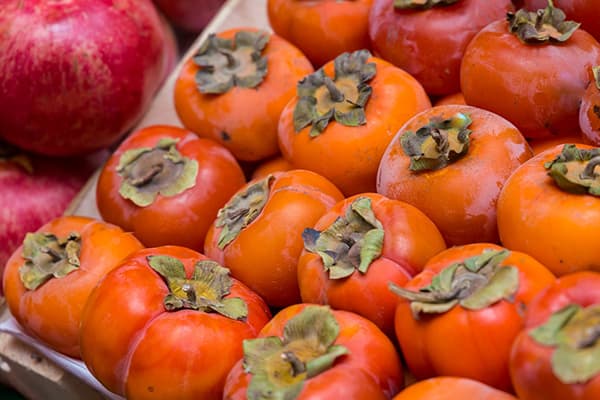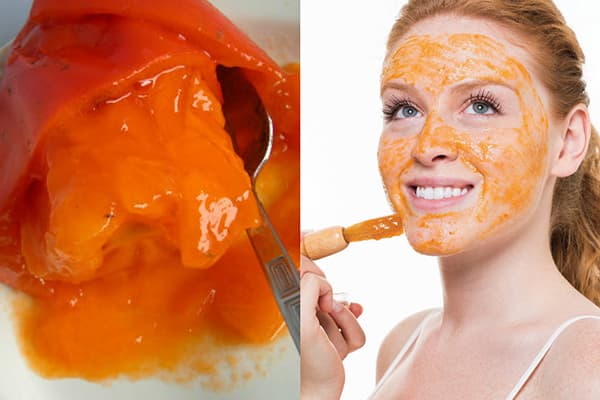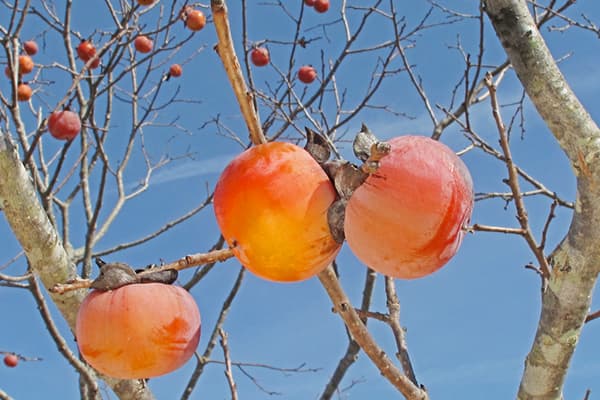“Food of the gods” and southerners: how are persimmons useful and who should not eat them?
In the fall, persimmons appear in grocery markets and stores, the benefits of which are not only in strengthening the immune system. Bright orange fruits saturate the body with vitamins and minerals. Many people adore persimmons for their juicy pulp and sweet taste. The fruits are eaten fresh, added to baked goods, desserts, salads, and meat dishes. We will tell you what benefits and harm persimmon can bring to your body.
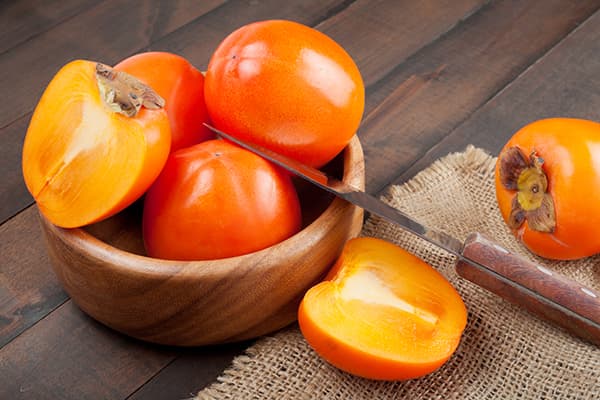
Nutritional value, calorie content and composition
There is good news for people losing weight: persimmons are low in calories. 100 g of juicy pulp contains only 65–70 kcal. If you eat 1-2 pieces every day, following the principles of proper nutrition, you are unlikely to gain weight.
It is not recommended to eat persimmon after 16:00, as it contains glucose and fructose. The remnants of “simple” sugars not absorbed during the evening and night can be deposited in fat reserves.
There are practically no proteins or fats in persimmon, so it cannot be called filling. But orange fruits are perfect as a light snack between main meals.
Persimmon is rich in the following substances:
- vitamin A and beta-carotene;
- vitamin B5;
- vitamin C;
- biotin;
- potassium;
- magnesium;
- calcium;
- iron;
- iodine;
- chrome.
The fruits contain a lot of dietary fiber. When ingested, they absorb and then remove harmful compounds from the body: toxins, salts of heavy metals.In addition, dietary fiber serves as food for healthy intestinal microflora.
TOP 10 health benefits of persimmon
Persimmon is often included in the diet of people who lead a healthy lifestyle. If you eat fresh fruits every week, you can prevent chronic diseases or improve the condition of existing ailments.
So, what are the health benefits of persimmons?
- Strengthens immunity
With the onset of cold weather, it is useful to switch to eating not only citrus fruits, but also persimmons. After all, 100 g of orange pulp contains almost 17% of the daily requirement of vitamin C. True, the product is more suitable for the prevention of viral diseases, rather than treatment.
- Supports heart and vascular health
Vitamin C, which is present in persimmons, increases the strength of blood vessels. But the main value for the “core” is pantothenic acid. 100 g of fruit pulp provides 152% of the daily requirement of this substance for the body.
Pantothenic acid stimulates the production of adrenal hormones - glucocorticoids. They reduce capillary permeability, maintain normal arteriolar tone and myocardial contractility, and reduce inflammation in the body.
Persimmons contain a lot of potassium and magnesium: 8% and 14% of the daily value, respectively. These macroelements regulate water-salt balance, normalize blood pressure, blood microcirculation, and strengthen the heart muscle.
Due to the high content of B vitamins, orange fruits have a positive effect on fat metabolism in the body. Persimmon reduces the level of “bad” cholesterol in the blood and prevents atherosclerosis.
- Normalizes digestion
The product will bring maximum health benefits to people prone to diarrhea, since the fruits contain tannins - substances with astringent properties. And dietary fiber improves the functioning of the stomach and intestines, as it removes waste products of pathogenic bacteria.
100 g of persimmon provides 16% of the body's daily requirement for chromium. This trace element normalizes blood sugar levels and helps regulate appetite. If there is a lack of chromium, a person experiences sudden attacks of hunger and becomes prone to overeating.
- Improves vision
100 g of pulp contains 22% of the daily requirement of vitamin A and 24% of beta-carotene. These substances improve blood supply to the retina and prevent myopia and night blindness (impaired twilight vision). It is especially useful to give the product to children and adolescents during school periods.
- Prevents cancer
Vitamins A, C and E, present in persimmon fruits, have powerful antioxidant activity. They protect the body's cells from the destructive effects of free radicals, reducing the risk of malignant tumors.
- Calms the nerves
Persimmons taste so sweet because they contain a lot of fructose. This natural sugar lifts your mood and improves performance. B vitamins have a positive effect on the nervous system and mental abilities. They prevent chronic fatigue, depression, and increased anxiety.
Persimmon is one of the few foods available that is high in iodine. 100 g of fruits provide 40% of the body’s daily need for this substance. Iodine activates the brain and gives a surge of energy.
- Preserves beauty and youth
Persimmon is one of the healthiest fruits for women because it contains a lot of biotin. This substance promotes the growth of new cells, normalizes the metabolism of fatty acids, and regulates the functioning of the sweat glands. It is especially useful to eat the product after 50 years, when, due to changes in hormonal levels, many women face an intense aging process.
- Helps you lose weight
When consumed in moderation, persimmon normalizes metabolism and promotes healthy weight loss. The product contains iron and iodine - microelements that have a positive effect on the thyroid gland (failures in its functioning often cause obesity).
Glucose and fructose in persimmons are balanced by chromium, water, and dietary fiber. That is, carbohydrates are absorbed gradually, and therefore do not lead to weight gain. Due to their low calorie content, fruits can be safely included in the diet.
- Protects against anemia
Iron is responsible for this property. The trace element stimulates the production of hemoglobin, a protein that carries oxygen to various organs and tissues. During pregnancy, the risk of anemia increases, so expectant mothers should definitely include orange fruits in their diet.
- Relieves swelling
Persimmon has a slight diuretic effect and removes excess fluid from the body. This beneficial property is especially important for pregnant women in the third semester.
The benefits of dried and dried persimmons
Dried persimmon retains almost all the vitamins, macro- and microelements that are present in fresh fruits. Only the calorie content changes: 100 g of product contains 230–240 kcal. It is enough to eat 4-5 pieces a day to saturate the body with useful substances and at the same time maintain a slim figure.
Dried persimmons are easy to prepare at home:
- Choose ripe fruits with firm flesh.
- Wash them under running water, remove the skin and cut into slices 3–5 mm thick.
- Line a baking sheet with parchment paper. Lay out the pieces of fruit and send them to dry in the oven at 90 degrees.
Approximate cooking time is 2–3 hours. The finished product has an orange-brownish color and a crispy crust.
Dried persimmon is more difficult to prepare, but it has a richer and sweeter taste. Calorie content and vitamin content are the same as dried.
We tell you how to properly wither persimmons:
- Buy ripe fruits with dense pulp. Rinse under running water and dry.
- Carefully remove the skin, leaving a small circle around the cutting and the “tail” itself.
- Prepare a strong thread. Hang each fruit on it by its stem. Make sure they do not touch each other.
- Hang the fruits to dry in a dark, well-ventilated area. If sunlight accidentally hits them, the color of the finished dried fruits will turn out dull.
- After 4-5 days, a white coating will appear on the fruit. This is sugar. Gently massage the fruits with your fingers, distributing the coating over the entire surface. Repeat this procedure every 3 days for 2 months.
You can buy ready-made dried (dried) persimmons in the store. It is better to choose dried fruits brought from Japan. In this country, harvesting technology is carefully followed, and the fruits themselves contain a maximum of vitamins.
Potential harm and contraindications to consuming persimmons
Like any other product, persimmon can cause harm to the body if consumed in excess. Most often, lovers of orange fruits encounter an overdose of vitamin A.This condition is fraught with the following side effects:
- yellowing and dryness of the skin, the appearance of microcracks;
- stool disorder;
- nausea, vomiting;
- increased bone fragility;
- inflammation of the gums;
- irritability, anxiety.
Excess vitamin A is dangerous for pregnant women, as it increases the risk of intrauterine pathologies. Therefore, during pregnancy you should not consume kilograms of persimmon. 1 piece a day is enough.
You should not eat unripe fruits, as they contain a lot of tannins. These substances can “glue” the contents of the stomach, causing the formation of indigestible lumps, which can cause intestinal obstruction and severe abdominal pain. The combination of persimmons with milk proteins is especially harmful.
The product has the following contraindications for use:
- age up to 3 years;
- tendency to constipation;
- diabetes mellitus type 2;
- allergy.
Sometimes the authors of articles advise obese people to exclude persimmons from their diet. However, if you eat one small fruit in the first half of the day, your weight will not increase, and your body will receive a portion of the vitamins necessary for healthy metabolism.
How to choose a delicious persimmon?
If you want to buy ripe and sweet persimmons, pay attention to their appearance. Ripe fruits have a bright orange color and brownish leaves. The skin should not have dents, cracks or dark spots. If, when pressed, a hole remains on the fruit, it means that they have already lost most of the vitamins and have begun to deteriorate.
One of the best varieties available on the Russian market is the Spanish persimmon Persimon Bouquet. It tastes very sweet and is not astringent at all. The fruits are larger than those of the familiar “Korolka”, the peel is hard, the flesh is dense, and there are no seeds inside.
Using persimmon for cosmetic purposes
Persimmons can not only be eaten, but also used to make masks. After all, it contains many substances that have a rejuvenating effect. Persimmon juice regulates the functioning of the sebaceous glands, cleanses pores and destroys bacteria. Therefore, it will be especially useful for problematic skin prone to pimples and acne.
The simplest recipe for a face mask includes only two ingredients: 1 tablespoon of persimmon pulp and 1 beaten egg yolk. They need to be mixed thoroughly, applied to clean skin and left for 15 minutes. Then rinse with warm water. This mask prevents the appearance of new wrinkles, cleanses the face well and gives a feeling of freshness. And if you additionally add 1 tablespoon of oatmeal to the product, you can achieve the effect of narrowing pores.
It’s not for nothing that the ancient Greeks called persimmon the food of the gods. Orange fruits have a general strengthening effect on the body and prevent the occurrence of serious ailments: cancer, cardiovascular diseases, anemia. Persimmon has a pleasant taste in any form: fresh, dried and dried. Consume it in moderation to maintain healthy internal organs and a great mood.
